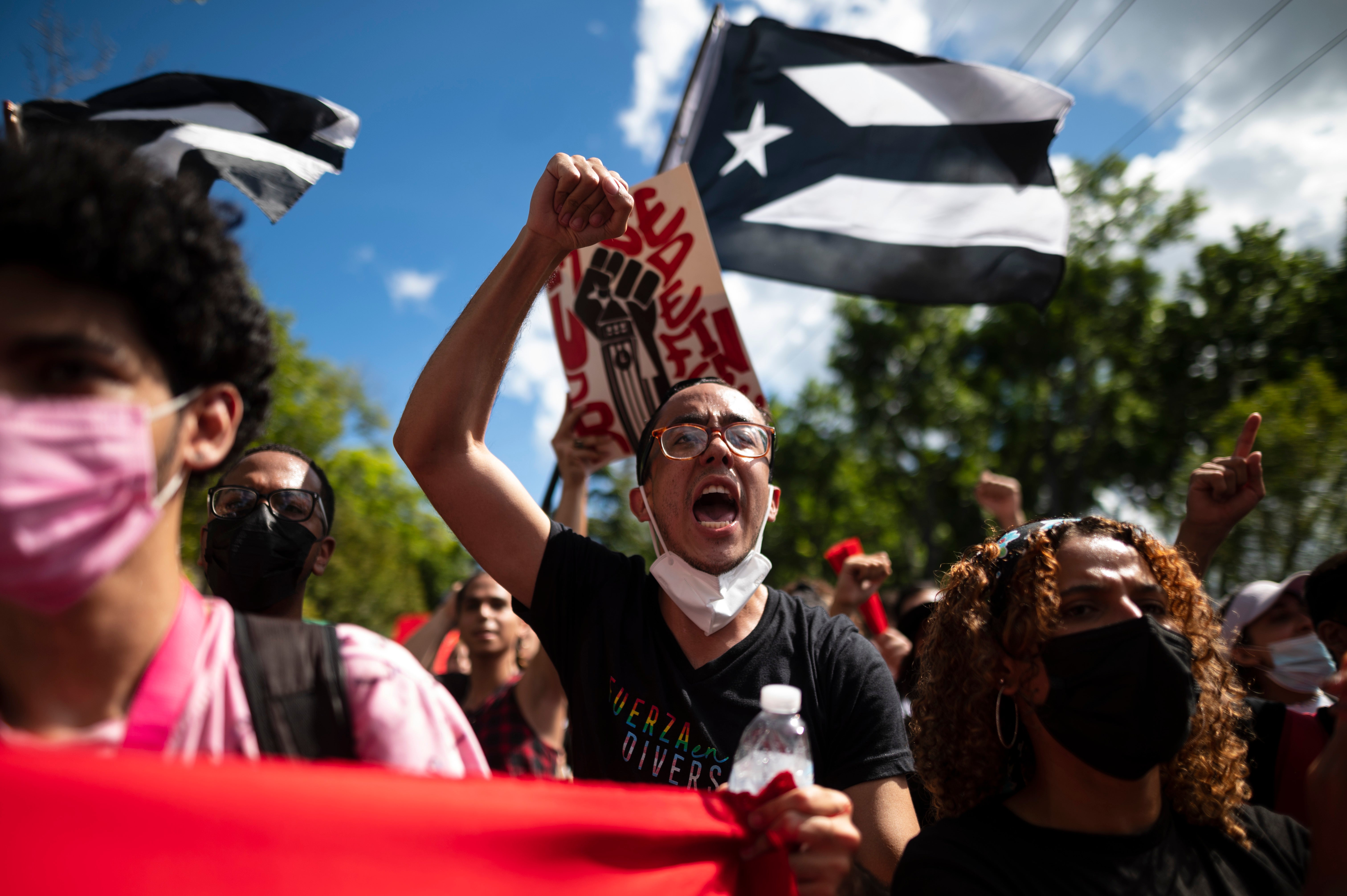Puerto Ricans fearful of plan to restructure public debt
Puerto Rican citizens have gotten the chance to express their fears about a massive debt overhaul plan, testifying before a judge with the power to decide Puerto Rico’s economic future

Puerto Rican citizens got a chance Tuesday to express their fears about a massive debt overhaul plan before a judge with the power to decide Puerto Rico’s economic future.
After months of wrangling by attorneys, economists and bondholders, the session was an opportunity for retirees, housewives and others to share their worries that the plan would strangle small businesses, freeze pensions and cause yet more hardship for a U.S. territory that has suffered years of steady economic decline.
Some said they worried that despite such a squeeze, greater cuts on money owed to creditors are needed to stave off yet another bankruptcy and even more dire hardships.
The testimony in a San Juan courtroom came more than six years after the island declared it was unable to pay its more than $70 billion in public debt accrued through decades of mismanagement, corruption and excessive borrowing and more than four years after it filed for the biggest municipal bankruptcy in U.S. history.
Wanda Alabarces, a 75-year-old widow from San Juan, complained to Judge Laura Taylor Swain that the debt had been illegally accrued by a “nefarious” government and that it must be audited.
“We don’t know what we’re paying for,” she said in testimony that was also transmitted online and via phone.
The plan would reduce a $30.5 billion chunk of debt to $7.5 billion, allow the government to issue $10 billion in new debt and award some $7 billion in cash to bondholders who haven’t been paid in almost five years.
The plan would erase more than $1.3 billion owed to government suppliers, contractors and others — something business leaders say would force some companies to close.
It drops an earlier proposal for pension cuts, but would not allow cost-of-living adjustments. Retirement benefits of current government employees would remain frozen.
And people who invested for retirement by buying Puerto Rico government bonds would only receive only several cents on the dollar they are owed.
“Your decision, Justice Swain, is the only thing separating our families and communities from further suffering and grief,” testified Alana Feldman, daughter of a police officer and teacher from the central mountain town of Adjuntas.
Feldman said her mother, who receives about $500 a month in pension as a retired teacher, has lost some 20 pounds in recent years because she faces “the daily burden of deciding whether to purchase medicine or protein.”
Annette Jiménez of Vega Baja, a mother of three, said she feared the plan would only lead Puerto Rico into a second bankruptcy, with the burden placed “on the tired shoulders of the same people.”
“We want to emerge from bankruptcy, but it can’t be done by taking us or condemning us to misery,” said Jessica Ortega, a school principal. “We already live in poverty.”
The judge said that while the law requires her to consider many factors, “to hear the pain and the hopes and the dreams today is very important for the court.”
Puerto Rican economist José Caraballo-Cueto warned that the plan was “not feasible,” saying in a letter to the judge that Puerto Rico would face another restructuring round in upcoming decades.
“A high probability of a second default means a low probability of returning to the credit market,” he wrote.
Supporters, however, said the plan is essential to ending Puerto Rico's bankruptcy and noted that numerous creditors have accepted significant concessions.
It would reduce the government's debt payments from 25 cents of every dollar collected in taxes and fees to 7.2 cents, according to David Skeel, chairman of the federal control board that oversees Puerto Rico's finances and drafted the plan.
“It's a truly historic moment for Puerto Rico. ... There is no doubt that ending this chapter would be a remarkable step for Puerto Rico, especially if it leads to a substantial cut in future payments to creditors, clears the path to access the financial markets, and ensures future governments will not repeat the same practices that led to this bankruptcy,” he wrote recently in Puerto Rico's El Nuevo Día newspaper.
Bookmark popover
Removed from bookmarks